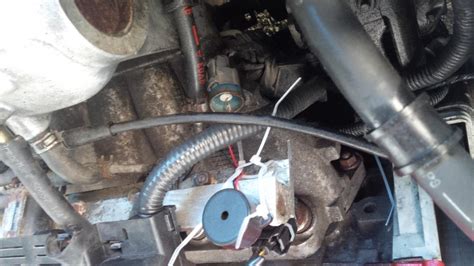How To Disable Knock Sensor
Ronan Farrow
Mar 24, 2025 · 3 min read

Table of Contents
How to Disable a Knock Sensor: A Comprehensive Guide
Disabling a knock sensor is not recommended for most vehicles. It's a critical component of your engine's management system, designed to protect it from damage. However, there are specific circumstances where temporarily disabling it might be considered, such as troubleshooting or during specific modifications. Proceed with extreme caution and understand the potential risks involved. Incorrectly disabling or tampering with this sensor can lead to serious engine damage, reduced performance, and potentially void your warranty.
Understanding the Knock Sensor's Role
The knock sensor is a crucial part of your car's engine control unit (ECU). Its job is to detect detonation, also known as knocking or pinging – an uncontrolled explosion of the air-fuel mixture within the cylinders. This can be caused by various factors, including:
- Low-octane fuel: Using fuel with a lower octane rating than your engine requires.
- Advanced ignition timing: When the spark plug fires too early.
- Carbon buildup: Accumulated deposits in the combustion chamber.
- Lean air-fuel mixture: An insufficient amount of fuel relative to air.
When the knock sensor detects detonation, it sends a signal to the ECU. The ECU then adjusts the ignition timing to reduce the likelihood of further knocking, protecting your engine from potential damage.
Why You Might (Incorrectly) Consider Disabling It
There are very few legitimate reasons to disable a knock sensor. Some scenarios where people might consider it include:
- Troubleshooting: In rare cases, disabling the sensor can help isolate whether it's the source of a problem. However, this should only be done by a qualified mechanic with diagnostic equipment.
- Engine modifications: Some high-performance modifications might temporarily necessitate disabling the knock sensor to allow for more aggressive ignition timing. This is highly risky and should only be undertaken by experienced engine tuners.
The Risks of Disabling Your Knock Sensor
Disabling your knock sensor significantly increases the risk of:
- Engine damage: Detonation can lead to piston damage, cracked cylinder heads, and other costly repairs.
- Reduced engine performance: The ECU relies on the knock sensor's input to optimize performance. Disabling it may result in reduced power and efficiency.
- Voiding your warranty: Most manufacturers' warranties will be voided if modifications are made to the engine management system, including disabling the knock sensor.
Alternatives to Disabling the Knock Sensor
Instead of disabling the sensor, consider these safer alternatives:
- Using higher-octane fuel: If you're experiencing knocking, switching to a higher octane fuel is a safer and more effective solution.
- Professional engine tuning: If you've made performance modifications, a qualified tuner can adjust the engine's settings to prevent detonation without disabling the knock sensor.
- Addressing carbon buildup: Regular maintenance, including cleaning the combustion chamber, can help reduce carbon deposits and prevent knocking.
Conclusion
Disabling your knock sensor is generally not advisable. The potential risks far outweigh any perceived benefits. If you're experiencing problems, consult a qualified mechanic for proper diagnosis and repair. They can identify the root cause of any knocking and recommend the most appropriate solution without jeopardizing your engine's health. Remember, a properly functioning knock sensor is essential for protecting your engine and ensuring optimal performance.
Featured Posts
Also read the following articles
| Article Title | Date |
|---|---|
| How To Get Certified To Give Injections | Mar 24, 2025 |
| How To Grow Ranunculus From Seed | Mar 24, 2025 |
| How To Clear Service Exhaust Fluid System | Mar 24, 2025 |
| How To Drain Baseboard Heating System | Mar 24, 2025 |
| How To Get Rid Of Wax Buildup On Furniture | Mar 24, 2025 |
Latest Posts
-
How Long Can A Workers Comp Case Stay Open
Apr 05, 2025
-
How Long Can A Washing Machine Sit Unused
Apr 05, 2025
-
How Long Can A Tree Survive Out Of The Ground
Apr 05, 2025
-
How Long Can A Temporary Crown Stay On
Apr 05, 2025
-
How Long Can A Stingray Survive Out Of Water
Apr 05, 2025
Thank you for visiting our website which covers about How To Disable Knock Sensor . We hope the information provided has been useful to you. Feel free to contact us if you have any questions or need further assistance. See you next time and don't miss to bookmark.
